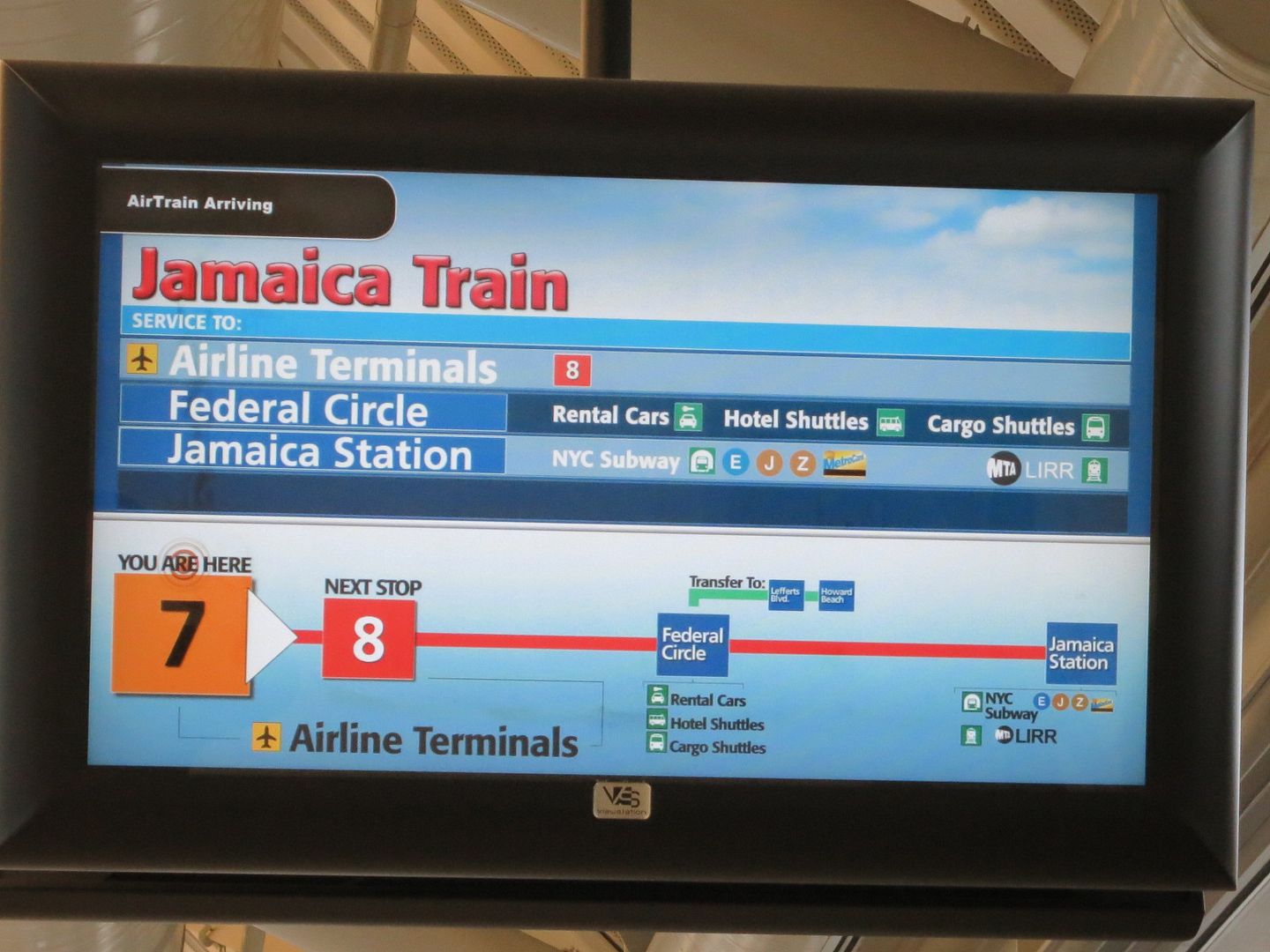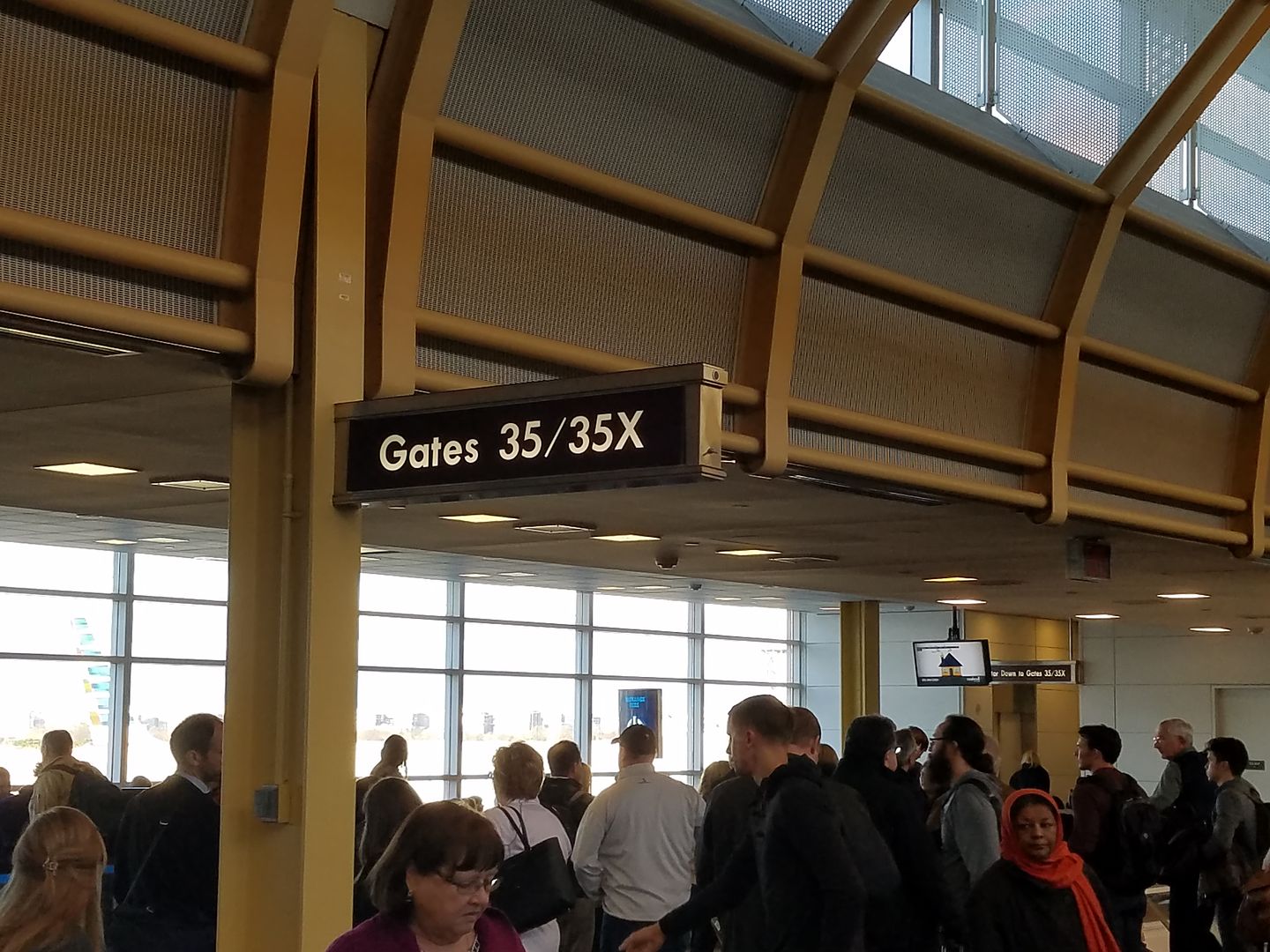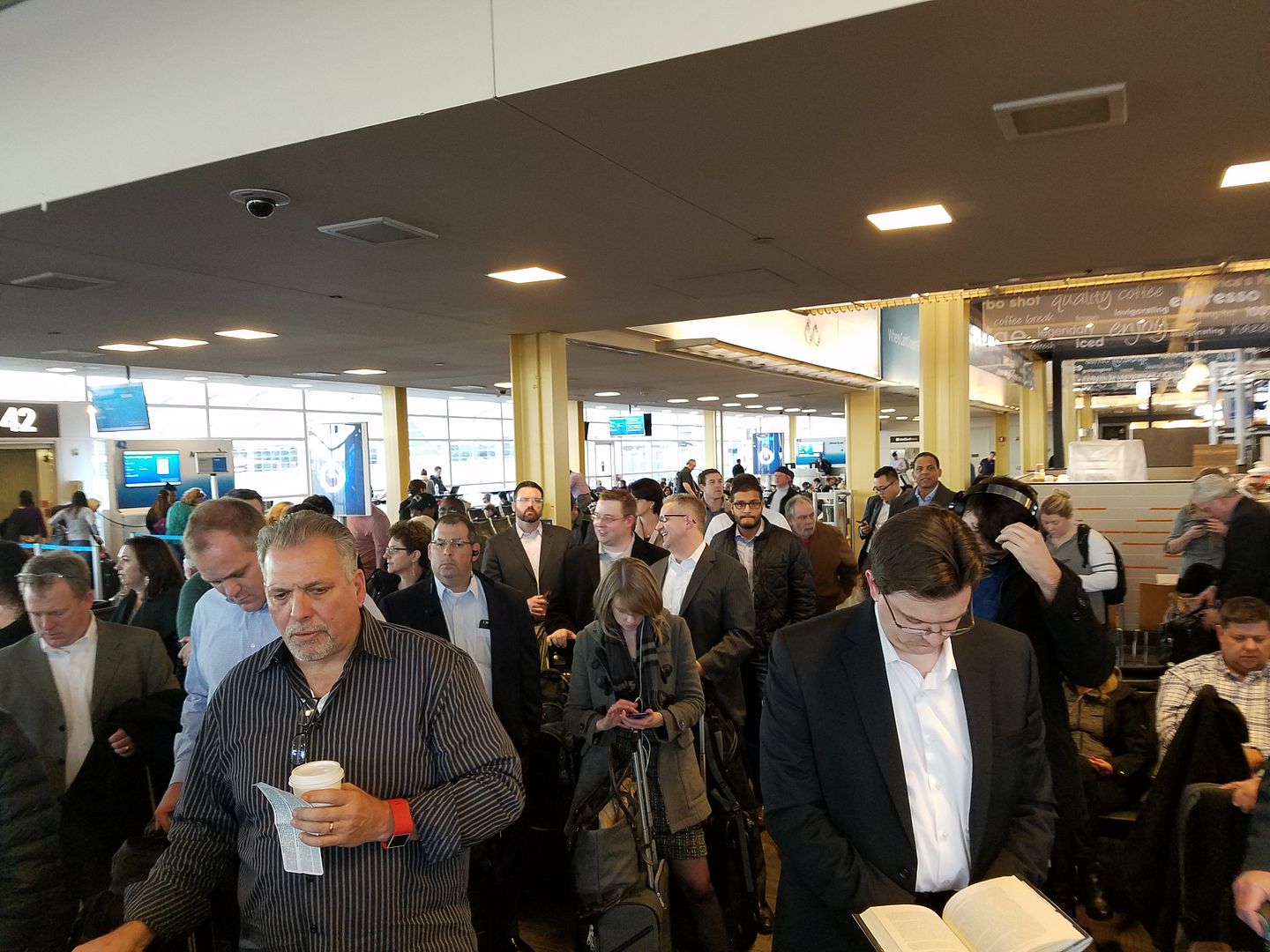There’s a lot of pushback to the Trump administration suggestion to sell off DC area airports.
I’d like to leave aside the particular proposal and make a few points about the concept, both selling the DC airports and federal assets generally. Even if you’re not a fan of the President (like me) or of ‘privatizing’ see if you can disagree with these.
- The Metropolitan Washington Airports Authority is nearly as bad as the Port Authority of New York New Jersey and Los Angeles World Airports. They’re known for nepotism, cost overruns, and sweetheart contracts for friends in spite of contracting rules.

Washington Dulles - New York airports are effectively sold off already, the government grants future income streams from terminals to private developers in exchange for those developers putting up the money to refurbish terminals. Technically ownership doesn’t change but it’s the same thing in practice.

How You Get Between Terminals at JFK - Airports are private in much of the rest of the world, where airports are generally better.

Hell - Government hasn’t been able to build a new significant commercial airport since Denver. That’s decades without new construction.

How You Get to Hell
What’s more we’re looking at trillion dollar deficits even during periods of economic growth. We either will not invest in infrastructure, have to raise taxes significantly to do it, or trade assets held by the federal government for assets that better serve the public.

Washington National


The major airports are the problems, coupled with environmental demands on construction. Fighting through those hassles are tough. But look at successful projects too, it’s not all bad news. SLC is a prime example of managing costs and taxpayer impacts, environmental (wetlands) concerns, while being a complete new build. I agree with @gary that privitizing is the better option all around but it’s not the end of the world either if we have honest entities doing the work…
You are absolutely correct on Point #1. The MWAA is a third-world level corrupt organization and those with a vested interest in keeping it that way are the source of much of the local push back.
Before the airports are sold off, the UA terminal at IAD should be preserved as a national monument. It’s a memento of America’s era of Soviet-style-passenger-aviation, with its long shuffling lines, security police demanding your papers; the sad faces, the long cramped corridors, low ceilings, dim lights, discordant unintelligible announcements and all-pervading air of confusion. As for those 1960’s “mobile lounges”, they too should be preserved as a historic relic.
So you think that government granting a monopoly (which, by their nature, airports are) is a positive economic process? And that the same people that you believe are “known for nepotism, cost overruns, and sweetheart contracts for friends” will grant these monopolies in the best interests of the public and travelers? And that adding on the cost of needing to get market returns for the private contractors instead of being run as non-profits will make them less expensive to operate?
The only way that privatization of a public utility like airports can be anything but corporate welfare is if it is sold off in a public offering with a diverse shareholder base (and, at the heart of that, it is selling it to the people who already paid for it in the first place).
In regard to number 2, if they have effectively already been privatized, can you point to how the New York area airports have gotten much better than other airports that are publicly owned? It seems to me that you are not terribly impressed by the New York airports.
#3 and #4, perhaps a list of public and privately owned and developed airports might put a little meat on the bones of your arguments. I don’t know which are which, so can’t say whether I agree with you or not. I would be very surprised if there is a major airport anywhere that was developed entirely privately.
@farnorthtrader – there is a monopoly now. and you don’t even get competition *between governments* with PANYNJ running LGA/JFK/EWR and MWAA running MWAA. Selling off an airport would increase competition not decrease it.
I hope you all love LHR and all of the other shopping malls in Europe that masquerade as airports since they are coming to the US.
And I’m sure the airport cost per pax will go down since its run by a private company ::roll eyes::
can’t wait to see which one of Trump’s donors wins the chance to buy the airport.
Okay, are they privatized or not? In the post, you said they are effectively privatized and in your comment, you said they are not. And governments, effectively, cannot be a monopoly, as the downside to a monopoly is that the monopolist can gain above normal economic gains at the expense of the customers. Whatever economic gains accrue to a government are accruing to the taxpayers, who are the people who paid. It is a zero sum game. Is there corruption in government? Of course there is. Is there corruption in private industry? Of course there is. And the incentives for corruption in private industry are much larger and the safeguards against corruption much less.
In general, I agree with privatization where it does not grant a defacto monopoly (such as governments privatizing national airlines) but I still say that airports are not one of those places, just as police forces, fire departments and prisons are not proper places for privatization. Perhaps the privatization of prisons would be a good example of what you are suggesting? That has gone so well
According to Hunter Baker in the Action Institute Powerblog (2/6/13), by 1986, New York spent $13 MM over 6 years, and failed to build an Ice Skating Rink in Central Park. At that time Donald Trump, then a Democrat, told Mayor Ed Koch (in my opinion one of New York’s best Mayors) in early Summer 1986, that he would build it for $3 MM and would personally cover any excesses. By late October that year, it was finished, $3/4 MM under budget. Yea, I know, my New York Liberal friends tell me that Trump is evil, like Kim Jong Un or worse (LOL Gary: viewfromthewing.com/2018/01/02/president-trump-claims-credit-planes-landing-safely-2017). Nevertheless, this story is instructional.
By all means, privatize the Washington DC airports. Then, have the Port authority sell the New York Airports (related topic) and the connecting shuttles to some greedy New York developers. They cannot do worse than the Port Authority. De Blasio can spend some of the proceeds ordering up some environmental studies or whatever he does with the money. Seriously, since Bloomberg is not around any more, even though the proceeds would most likely be wasted, at least LGA, JFK, and EWR would be better airports.
Privatizing airports will increase the cost of flying. Our airports will be better but be prepared to pay more because taxpayers don’t pay for airports or any terminal projects today, the airlines do through rates and charges. Private ownership will simply shift the development work from a government body to a private one and while there may be some effeciencies there, ultimately the airlines rates will go up because the developers running the airports aren’t working for free and those costs will get pushed to consumers. Look at LHR or FRA if you’re curious about what a private run airport system looks like…and get ready to pay your departure taxes.
If you want this to have any real effect on passenger experience, they should sell DCA and IAD to separate buyers. That would introduce real competition.
SJU (San Juan, Puerto Rico) is the only privately run airport on US territory. And guess what? It’s much more efficiently run than any government entity on the island by a long shot.
Privatization or government management can both work, provided the right incentives are in place. Obsession by the ignorant voting public over maintaining non-competitive compensation for leadership leads to sweeteners, corruption and cronyism. Privatization without appropriate consideration of structure can result in maligned market forces exploiting regulatory or legislative weakness.
In the end an airport needs to be responsible to only one customer, the general public flyer – if that means we directly pay for usage access, so be it. In addition, airports also need to be managed in such a way as to prevent “fortress hubs” to actually ensure fair market competition.
My top recommended changes to DCA/IAD are elimination of the perimeter rule, increased landing fees at DCA, and then ponying up the funds for the new Dulles terminal. If privatization can accomplish that, sure, go ahead. Otherwise, it will probably cause more problems than it solves.
The fact that JFK’s terminals are run as separate fiefdoms is a strong argument against privatization. The catastrophic meltdown a few months ago was because the PANYNJ was unable to co-ordinate storm recovery efforts and hundreds of planes were allowed to depart for JFK without gates or ground services available. Once they landed, there was no flexibility among terminals because of the structure. https://thepointsguy.com/2018/01/why-did-jfk-struggle-flight-backlog/
@ADB: “ignorant voting public”? I disagree with that statement on a per se basis. Just wondering, are you a liberal?
Selling monopoly public assets to private companies risks serious negative consequences. Two examples at Sydney Airport. 1) Macquarie, the private owners, **eliminated** the ability to pick up passengers at the curb (kerb, in Australia). They removed the Arrivals traffic lane entirely. So for a citizen to pickup a passenger, they must park their car in Macquarie airport’s paid parking, quite a distance from the terminal. This parking cost a minimum of about A$13 when I left in 2007. Macquarie would say, “we provide free parking for this purpose”. They allowed like 5-10 minutes free — a sprinter couldn’t get to the terminal and back in that time. 2) A passenger entering the country must take a long, zig-zag walk through aisles and aisles of liquor and perfume in the massive duty free shop they are lead through by the signs leading to Immigrations. Welcome to Australia — if you can find your way out of the hooch and chocolates and shiny merchandise.
These are disgraceful, but the airport is Macquarie’s business and they can treat their customers as they choose. Where else can these customers take their business?…nowhere.
While not as major, KC is building a new airport on passenger fee backs. Its already been a mess. Now they finally have a plan in place to build a glass box truck bomb soft target and are fighting over minority participation and union contracts. I think that even if we gave the DC airports away we’d save money.
Selling the DC airports to investors like Carl Icahn is not a very good idea. They are going to make all kinds of sweetheart deals and travelers and tax payers will end up the big losers.
What a crock of an article. The world’s best airports are all government controlled if not run (Singapore, Hong Kong, Doha, Seoul). The world’s most expensive airports are all private (want to CONNECT through LHR? That will be $80 in extra fees, most of them to the airport, on top of one of the world’s highest landing fee for the airline).
I’m not sure where you get your evidence free economics dogma, it would be better if you actually looked at facts before writing this stuff.
Why should taxpayers pay for airports?
Shouldn’t the airlines buy the land, pave the runways, and build the terminals (without the ability to issue tax-subsidized bonds)?
Anything less, and it’s not the dogmatic “market forces” in action.
As bad as these two DC airports may be — and I detest IAD and it’s neverending walks and stupidly placed shuttle station that’s almost a mile from the pier it purports to serve! — I also detest most privately owned airports around the world that have become shopping malls where shops and food outlets get better positioning than gates and other airline related facilities.
Airports are perhaps the least controversial infrastructure spending from a financing perspective, simply because there are easy mechanisms (landing fees, parking lots, concessions) to repay the creditor (whether thats private or public sector). Other parts of infrastructure have a much bigger issue self-funding (in particular any transportation or power projects in rural areas).
The details are clearly important (oversight/regulation, government’s inability to hold competitive auctions for these projects with credible managers, etc.) For reference, look at the recent NYT expose on mismanagement of the subway, which is clearly a failure of government management but also highlights inability of regulators to manage private sector contractors both pre-bidding and oversight of awarded projects.
https://www.nytimes.com/2017/12/28/nyregion/new-york-subway-construction-costs.html
@Mark. Trump would say that someone like Carl Icahn should negotiate on behalf of the tax payers and the flying public to get a better deal. Sorry, I cannot resist mentioning paraphrasing Trump, since I know his name causes liberals to foam at the mouth. Saying Trump, Palin, and Cruz 10 times in rapid succession would probably cause heart attacks.
In any case, after reflection, the Port Authority of New York (“PA”) that runs LGA/JFK/EWR is municipal corporation controlled by the State of New Jersey and the State of New York. They issue tax free bonds to private investors and repay those bonds from revenues raised from bridges, tunnels….airports. They do not have the right to enact taxes. Right now, the PA is raising tolls on bridges and tunnels well beyond the maintenance level. There is little accountability. For sure, here are some friends of politicians getting rich with the PA. Moreover, as Trump has pointed out, builders and businesses that make large donations to politicians get sweetheart deals from municipal entities. Hard to imagine it would be worse with a corporate raider in charge. In fact, one might argue that a heavily regulated utility model might be more transparent, more efficient, less corrupt, and produce better airports at a lower cost than municipal run corporations.
One final conceptual nit. Based airport bond Official Statements, airports are not entirely monopolies. LAX for example is in competition with BUR, LGB, MCO, SNA. For international traffic connecting traffic, they are also in competition with SFO, SEA and international USA airports.
@jim: You should visit the US before speaking. The airports are malls already.
@jake: “The world’s best airports are all government controlled” . Really? What research have you done? None, but you strongly feel it, right? Now we understand.
“They’re known for nepotism, cost overruns, and sweetheart contracts for friends in spite of contracting rules.”
MIA – #1A, unequivocally and without a doubt.
A very good 3rd world airport too!
@Ziggy exactly, the America’s Latin America
BTW the only city of USA that I am aware of, where Odrebrecht got contracts.
How is this not like Russia selling off its state assets, and they end up in the hands of Putin’s (think Trump’s) friends who all became billionaire’s? I guess Yellowstone, Yosemite, and the Grand Canyon are next if this succeeds.
Regarding #1, Stop living in and rehashing the past.
@Other Just Saying; that’s laughable. As if one “instructional story” makes or breaks the case, as opposed to reasoned, informed and *truthful* debate. Go back to the Acton Institute, buddy; the weekly Ayn Rand reading is waiting for you…..
Selling “all” of any metro area airports to one entity would be a bad idea. The reason they are so bad is because a single entity (the Airport Authority or port Authority) already owns all of them and look at what you get. They need to be divested to individual ownership so they compete. That is the only thing that would make sense. That way the operator would have a vested interest in improving the facilities for the traveling public who would have a choice in a free market.
LGA is being renovated and improved through a fixed term P3 agreement with AECOM. AECOM is putting up the money for it, and will operate the airport for something like 50 years. User fee structures and escalation through the term of the agreement were negotiated upfront.
It’s too soon to say if it’s an improvement over the former arrangement, though I’d be hard pressed to say how it could not. It IS a way to get the infrastructure improvements done without tax increases, but it’s questionable if it will result in a net savings for consumers.
Don’t put infrastructure in the hands of the wealthy.
While proper reform, including legislative oversight, is a good idea, privatization is not.
Why?
> Conflicts of interest/greed
> Prioritizing money above anything else
> Antitrust (it’s happened – look up BAA plc)